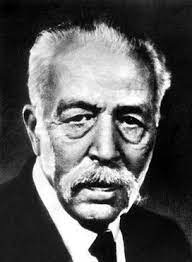Mosca, Gaetano

Bio: (1858-1941) Italian sociologist. Gaetano Mosca graduated in law from the University of Palermo and taught law, political economy, and political theory at the universities of Turin, Milan, and Rome. Mosca, who was a conservative, spent a long time in the Italian parliament, but, as he opposed giving dictatorial powers to Benito Mussolini, he withdrew from political life in 1925.
In the epistemological sense, Moscow was a positivist and believed that the social sciences were just at the beginning and that it was necessary to discover the general principles of the functioning of society through thorough and objective historical analysis. He believed that the method of political science should be a historical method. He believed that simply collecting historical facts could be enough to prove an idea.
As a conservative, he rejected the idea of social progress. He presented his theory of power and elite in the books Theory of Governments and Parliamentary Government (1884) and The Ruling Class (1896, 1923). Mosca believed that in every society there is an organized minority that rules over an unorganized majority. The mass (majority) can never be organized, because it lacks the will and instinct for it, while there are always individuals who, due to their personal qualities (intellectual or material), stand out from the mass. The ruling class, in any society, strives to legitimize its power by invoking an abstract principle that represents a "political formula", and the very nature of that principle is different in different societies and historical situations. In some societies the divine will is emphasized, and in some the ancient traditional power of the monarch. There are different cultural and material conditions in different societies, which lead to the existence of a different political organization of government and the ruling elite. One society can go through different cycles - periods in which circumstances are stable, so the elite and its source of power are petrified, as well as its stable attitude towards the masses, while there are also periods of sudden change. Sudden change can be caused by external or internal factors, but once it happens, the old elite is replaced or destroyed, and the new elite rises.
According to Mosca, a good ruling class should be composed of brave, persistent, rational, educated, and sincere politicians who are committed to the common good and gradual reforms, and are suspicious of the masses. In modern society, such a group is represented by the professional middle class, which, although it would be the best ruling class, has no power, because democracy has enabled the corrupt political elite to abuse democracy and win power. Mosca saw both democracy and socialism as enemies of the meritocratic rule of the middle class.
Fields of research
Classes Conservative Ideology Crime Crowd Culture Democracy Elites History Instincts Middle Class Monarchy Politics Power, Political Socialism Tradition Working ClassTheoretical approaches
Conservatism, SocialMain works
Sulla teorica dei governi e sul governo parlamentare (1884);
Appunti sulla libertà di stampa (1885);
Questioni costituzionali (1885);
Le Costituzioni moderne (1887);
Elementi di scienza politica (1896, 1923);
Che cosa è la mafia (1900);
Appunti di Diritto Costituzionale (1908);
Italia e Libia (1912);
Stato liberale e stato sindacale (1925);
Il problema sindacale (1925);
Saggi di storia delle dottrine politiche (1927);
Crisi e rimedi del regime parlamentare (1928);
Storia delle dottrine politiche (1937).
Works translated into English:
The Ruling Class (2018, in Italian 1896, 1923);
What is Mafia: Cosa è la Mafia (2014, in Italian 1900);
A Short History of Political Philosophy (1972, in Italian 1937).

